NRL
Time to show people who I am
As Queensland State of Origin captain and the general president of the players union, it’s a hectic time for Daly Cherry-Evans, who reflects on his leadership journey ahead of Origin.
Some of my earliest memories were of going to watch my dad, Troy, play footy.
If he wasn’t playing, and I wasn’t playing, the footy was on the telly and I loved nothing more than just sitting down with my old boy watching it.
I didn’t get much choice in it at the start, but luckily for me I’ve always enjoyed watching it and learning about the game, and from that young age I always dreamt of doing it myself at a high level.
I never got to see dad at the peak of his powers when he was playing for Norths and Redcliffe in the Brisbane Rugby League competition, which had a lot of prestige to it, but he kept playing into his late 30s.
I remember as a 10-year-old being the ball boy for dad’s footy games when we moved to Central Queensland and he was playing in the Mackay competition, and then transitioning into coaching. I’ve had a lot of people come up to me to talk about him and what he was like as a player.
One fella I met could move his nose from cheek to cheek and he said: “Your dad did this to me!”
I think a nice way to put it is that dad was a tough player. He never took a backwards step and was always happy to be right in the thick of things, good and bad.
I definitely admired the way he played the game. He was extremely tough and for someone of his smaller stature to never take a backward step playing at hooker in that era, in the hustle and bustle, I thought was something to look up to.
I knew right then and there that I never wanted to be in the thick of it like my dad, but I was learning a lot from what he was showing me.
I’ve always enjoyed watching rugby league for what it is. But I’m glad I didn’t have to play 20 years ago. I don’t know if I’m tough enough to have copped the batterings that they did.
I was always asking questions and he was always willing to tell me stories of how it was in his day. Sitting and watching with him, he would tell me to look at how different players did certain things. If he couldn’t do it himself he was showing me the people who could.
Having a father who had walked the walk made it easier for me. I know my Dad wouldn’t have told me to do something that he wouldn’t have done. It made it easier to listen and trust his advice.
I’m sure I let my dad down plenty of times. No doubt he’s always been proud of me, but there were definitely games where we had quiet rides in the car home.
He was my coach for a fair bit of my career. It was really good, but he always made me earn everything.
One of my best mates, growing up and still now, is Ben Barba and Dad always gave Ben the captaincy of teams we played in. Ben still teases me that he was the better captain.
That’s just an example of Dad never giving me anything if I didn’t deserve it.
When I see Dad every now and again, we still talk about footy. Nowadays he doesn’t sit me down and lecture me. Those days have gone, obviously. I’ve got three kids and a settled lifestyle but I’m never too good to hear what he has to say.
Now when we talk it’s more broadly about the game and our team and what’s going well and what’s not.
He played in different times. It was a time where you could probably get away with slipping up just below the chin and above the shoulders – that’s just how it was played back then.
I think the biggest change is that it’s more professional now. Back then it was nothing to have a day job. You’d work nine to five, finish that and go straight to training.
With this being our total focus now, what comes with that is more expectation and more external noise. Like any job, not just in the sports industry, there has been evolution.
I’ve always enjoyed watching rugby league for what it is. But I’m glad I didn’t have to play 20 years ago. I don’t know if I’m tough enough to have copped the batterings that they did.
My mum, Kellie, was always on board with me playing rugby league. She’s definitely got concerns about her son playing a contact sport.
But there’s a balance between being a controlling parent and then seeing the happiness and joy that something can bring to a kid. I was one of those kids who had a smile from ear to ear from playing every chance I got.
I don’t think my mum would have ever gotten in the way unless she felt it was unsafe. Rugby league has never been something I looked at to be unsafe.
The bottom line is I’ve always had the support of my parents to play the game I love.
On leadership
I still think I’ve got a lot of work to do as a leader. And I still don’t feel a hundred per cent great talking about my leadership role, especially with the Maroons, because it’s something I’m still learning.
I’ve only been captain of Queensland for the last two years. It’s not as if I’ve been the man for the last five.
Maybe it’s the years I spent sat watching footy on the couch with Dad, but I’ve always enjoyed listening and learning from others in the game, and I’ve been very fortunate, especially with people who I played under when it comes to captaincy roles.
Jason King and Jamie Lyon were my club captains at Manly, and then for any rep game Cameron Smith was skipper of Queensland and Australia.
I have learned you don’t necessarily want to mould yourself exactly like others because then you’re taking away from what you could be good at.
There were things that I saw and I thought “I definitely don’t want to do that”, and there were things I saw and I went “yep, I definitely want to have that as part of my role”. That’s the balance I’m learning around leadership – what works for me and my style.
My first-grade coaches have all played really important parts for me and so have my teammates.
I’ll always be so grateful to the three coaches who gave me my debuts – Des Hasler with Manly, Mal Meninga with Queensland and Tim Sheens with Australia.
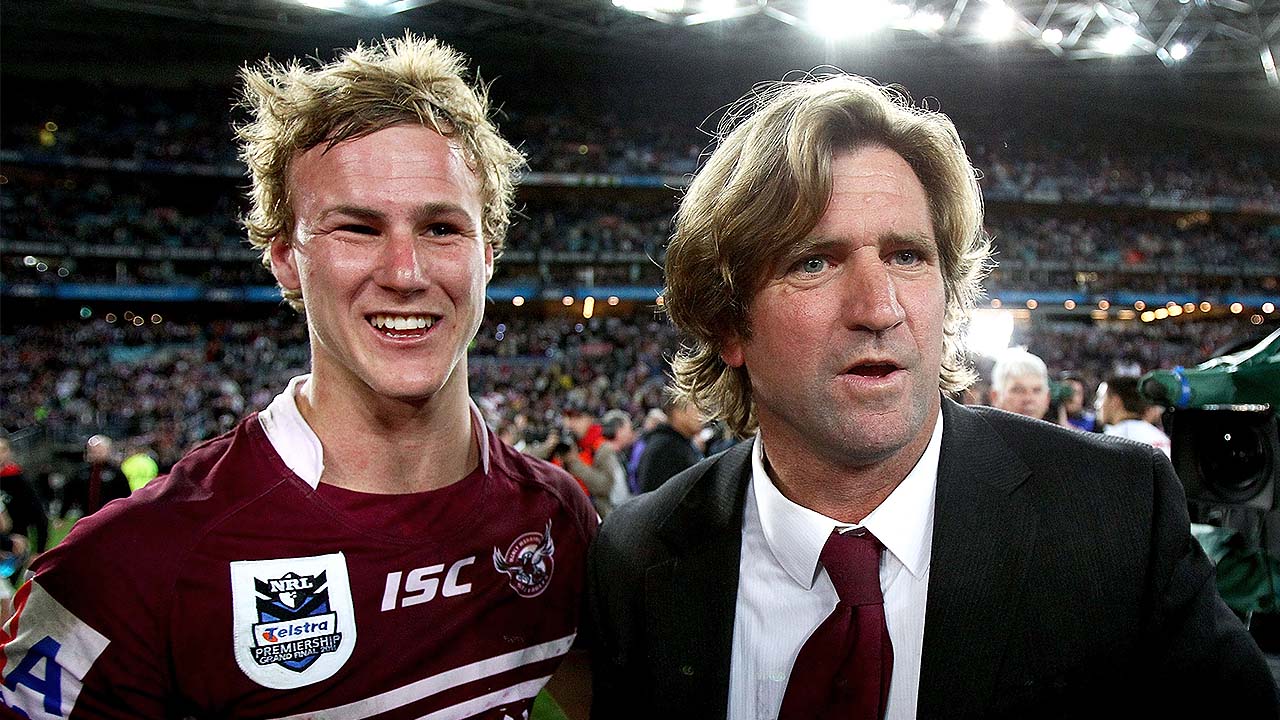
They probably thought they were doing the best thing by the team picking what they believed was a person who could help them come in and win, but those moments in time are what you grow up hoping and praying and dreaming of.
But when I was first confronted with leadership, I baulked.
When the Manly coach at the time, Trent Barrett, asked me, I actually said “Are you sure you want it to be me? I don’t think I’m the right person.”
I guess I was a little bit scarred from where I was at in my career. I had just been dropped from Origin a couple of years before. I was going to leave Manly for another club at one point. So everything was a bit all over the shop and I was still finding my feet and my identity as a player and a person.
But I knew where I wanted to go with my footy career and that was to get back into the rep sides and play finals footy for Manly.
Baz gave me that final boost of confidence when he said “I think you’re ready and I don’t think you quite understand how naturally you’re leading and how the people are watching you within the team. I think it’s time.”
Ken Arthurson and Bob Fulton were consulted and they agreed I should be captain. To hear it from them was something I’ll never forget.
That’s when I thought I needed to trust these people’s opinions and just back it from that day on and never look back. Once I’ve got a chance like that, I’m the sort of person who gets extremely ambitious to do more.
From then I thought maybe one day I can captain Queensland and Australia. I’m lucky enough to be the Queensland skipper right now and always hold out hope that maybe one day I can do it for Australia.
Jason King, my former captain at Manly, is a big reason why I’ve stepped up to take a role as general president of the Rugby League Players Association.
He was an advocate for the players, and I always admired him for the way he looked after the whole playing group. No matter whether they were a rookie reserve grader or his co-captain, Jamie Lyon, he treated everyone equally and wanted equal rights for everyone in the squad.
Kingy set that up for me. My mindset was that when the time was right and my first-grade career started to get some consistency, I knew I could maybe help the RLPA.
I really make sure that I’m not ever going into this with a personal agenda. The easiest thing for me to do have done would be to sit at home, collect my paycheck and just focus on playing footy, but people were starting to ask me what I thought. I can only hope I’m doing a good job for them and advocating their rights and privileges in the game.
Origin
State of Origin is such a cool time of the year. I had that time where I’d tasted it, then wasn’t picked for a few years through my own poor form, so every time I get named I’m extremely grateful.
With Queensland camps you really get to touch back in with your roots in the country areas – it gives you this real deep appreciation of what rugby league means to Queensland people.
I’m always appreciative to get named but when you go there and see what it means to the people still, it just gives you this something extra inside so you understand that Wednesday night when you’re playing you’re doing it for more than yourself.
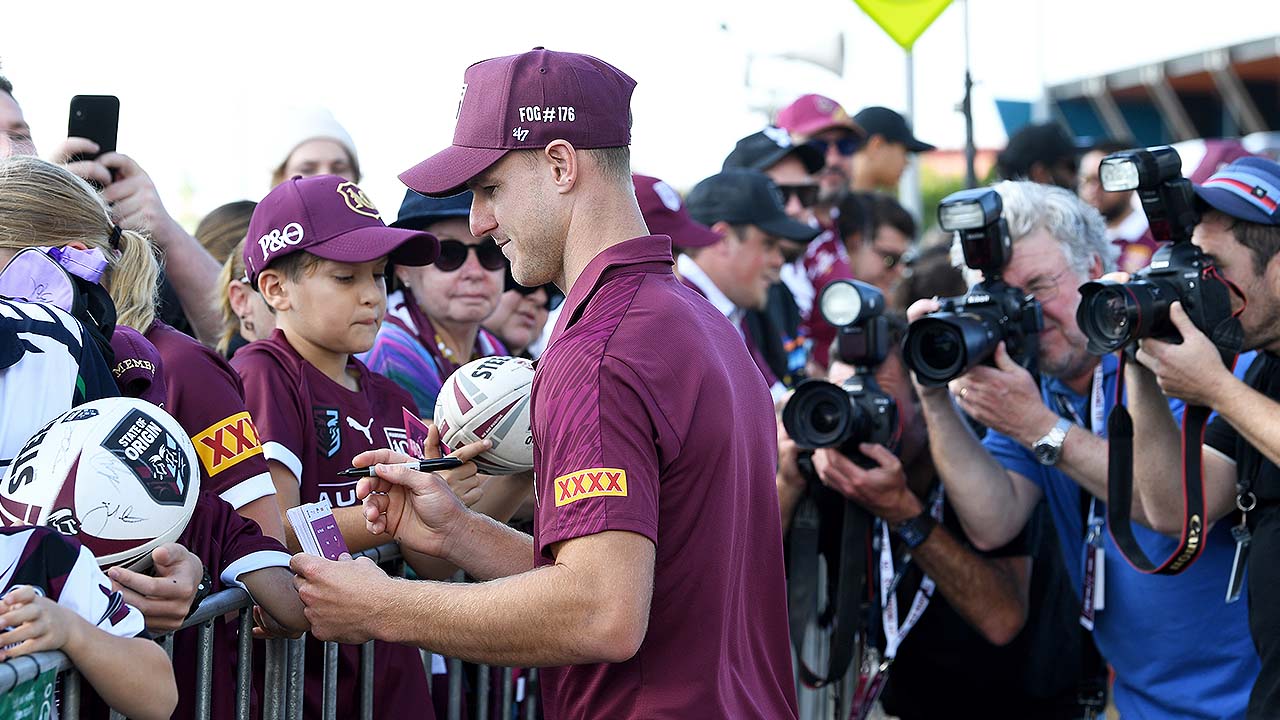
Last season turned out well and I got to give a speech at the end – “on behalf of the worst-ever Queensland team” – which caused a few headlines.
I always knew that the best thing we could have done while it was all going on was win and that’s ultimately all that mattered. If we’d lost, then maybe we were the worst Queensland team ever – so there was only one way to prove that wrong and that was to win.
We spoke about it in camp as a team and it did motivate us a bit extra.
As for the speech, I’ve been very private for a long time and I guess one thing that I’m starting to get a bit better at is showing people who I am by showing a bit more of my personality.
I can be that cheeky halfback – whether it’s taking the piss out of myself or my teammates. And I thought that was a really good opportunity to show that.
That speech was just my way of saying “You know what? You guys gave us a bit of shit, here’s a bit back.”
I’m lucky enough to be the Queensland skipper right now and always hold out hope that maybe one day I can do it for Australia.
There are some people who have played for Queensland in the No.7 jersey whose careers will be untouched and will be remembered forever.
If I can just make a bit more of an impact for the Maroons and win some more series, whether I’m remembered or not, I’ll always have that little piece of history to hold in my memories.
Speaking of cheeky halfbacks, Allan Langer is a name I always think of and I appreciate getting to spend time with him in Origin camp.
I love Alf. He’s so good to have around camp – someone who epitomises Origin football, what it means to be in camp and around Queenslanders – good people, tough footy players who just want to play and win and also, when it’s not time to train or play, have fun, enjoy each other’s company and build friendships that last a lifetime.
Evolution
It’s funny how time can change you and you can grow and evolve as a person. It’s still happening to me now.
I tried to fill someone’s shoes when I was first coming in, especially at Origin level, and it didn’t work. I recognise that clearly now that I’m older.
The hardest thing to be is someone else. The easiest thing is to just be yourself. I know that sounds cheesy, but I’ve learnt it the hard way.
It wasn’t until I started to understand that the best thing I could do for myself and any team I played in was to just be me that I’ve seen the joy in playing footy, and those leadership qualities that people see in me now come through more naturally.
Adversity is not just a physical thing in this game… most of my adversity has been through overcoming other people’s opinions of me.
When all those legends of the game retired from the Queensland team it was important not to see it as filling a void. If I think of it like that, I’m going to be extremely disappointed because those fellas achieved things in the game that will probably go untouched.
It would be like me trying to mirror my game and my personality on perfection.
What I’ve done – and it’s come with time and experience – is become really clear and confident in what it takes to play well on the weekend. My routine and my structures are like clockwork.
I know when I’ve got to eat, when I’ve got to stretch. I know when to switch off and spend time with my family or try and have a hit of golf.
On game day the rest comes naturally and it’s about being myself and making sure I’ve prepared well during the week, that I’ve built those connections and relationships with my teammates so we’re really clear when we run out there, that we’ve got a job at hand and we know how to do it.
Overcoming adversity
Adversity is not necessarily just a physical thing in this game. To be honest, most of my adversity has been through overcoming other people’s opinions of me.
The best way I can explain it is, if someone tells you they don’t like you when you’re a kid, you’d probably lose sleep over it. When you’re an adult, you think “gee that doesn’t feel nice”, but you’ve forgotten about it by bedtime because you realise it’s not that important.
When you’re younger, and you don’t know any better, it can keep you up at night. I guess that’s the best way I can explain how I felt when I’ve had nasty things said about me either in the papers or on social media.
I believe everything happens for a reason. I’m so lucky where I am today and I rarely look back at the bad things that have happened in my career. Don’t get me wrong, I’ve learnt a lot of tough lessons in my life, as we all do. Things are so good for me now I try not to waste time thinking about when times were rough and a little bit turbulent.
In a way, I’m grateful that my story and my experiences have been so up and down because it’s given me a lot of resilience. That’s one thing I’ll always pride myself on – the ability to overcome adversity.
More about: Daly Cherry-Evans | NRL | Queensland Maroons | rugby league | State of Origin
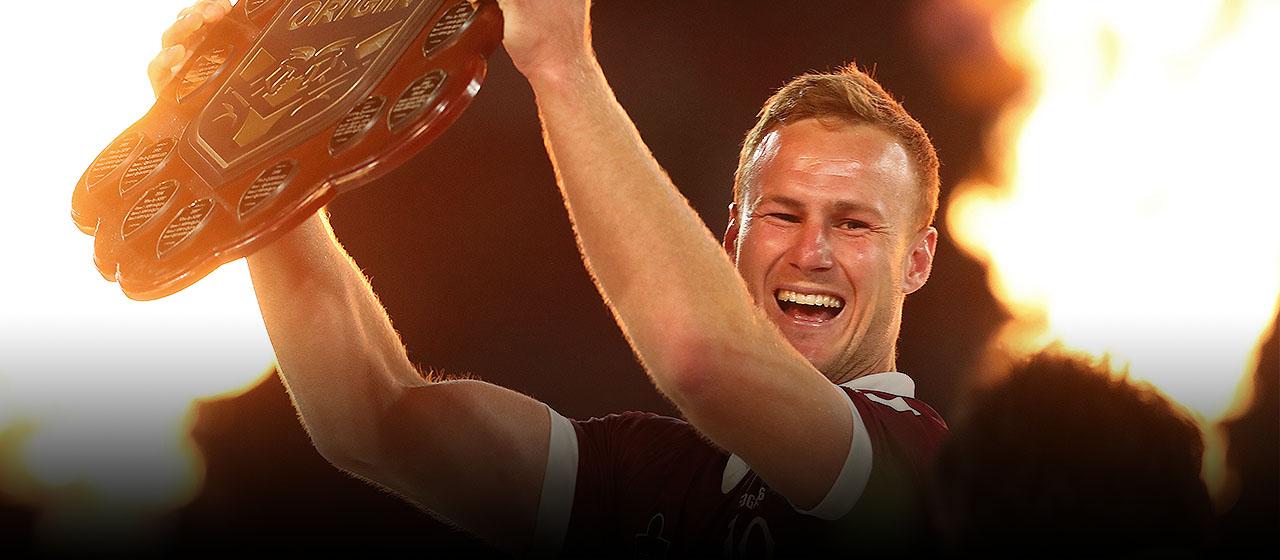
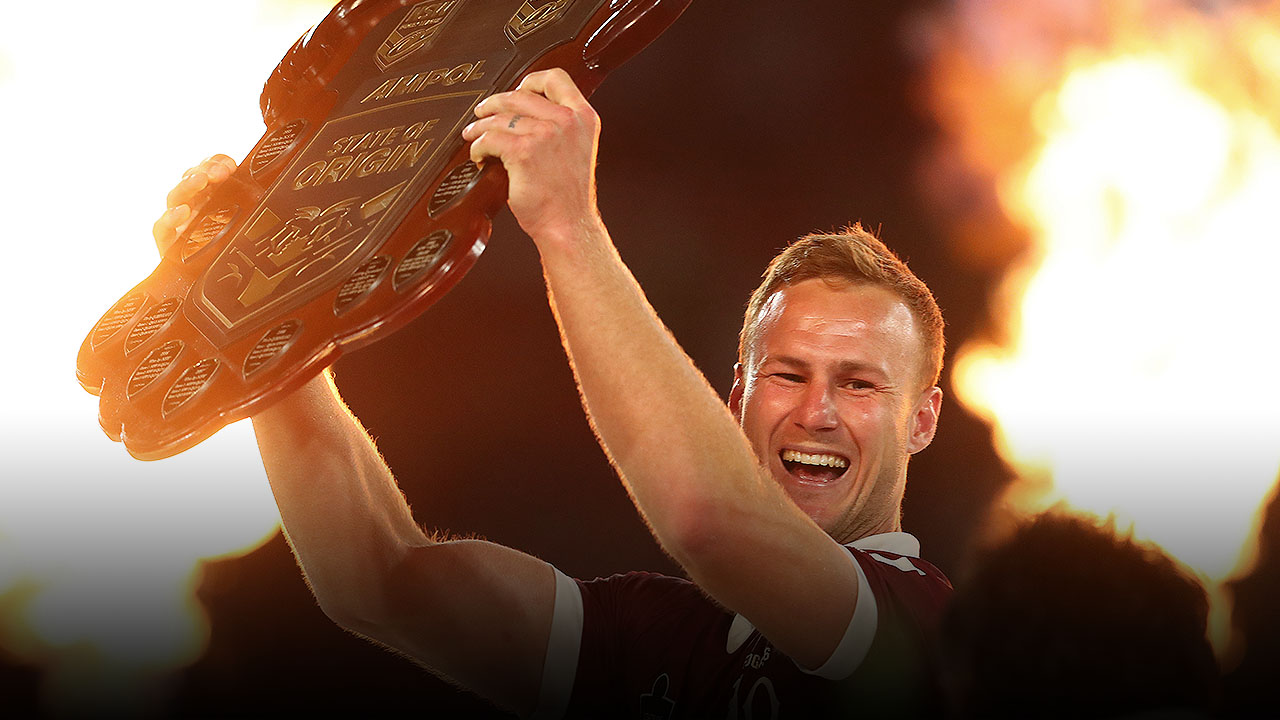
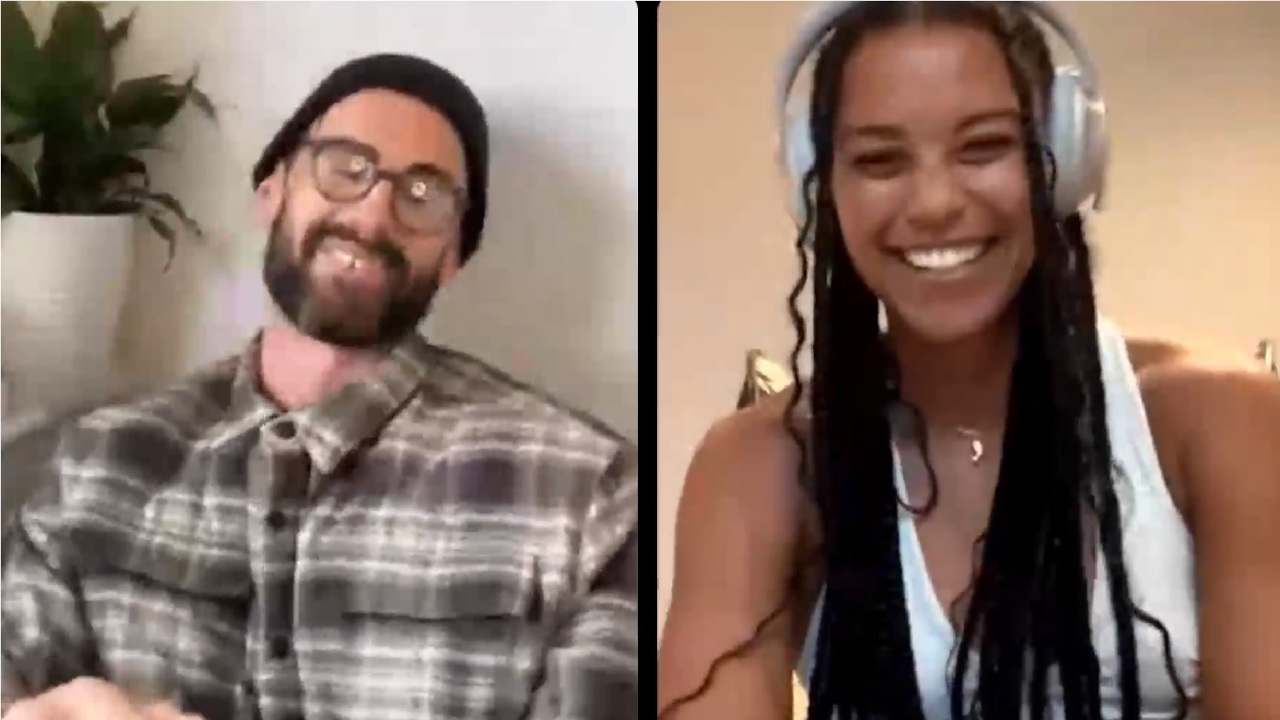
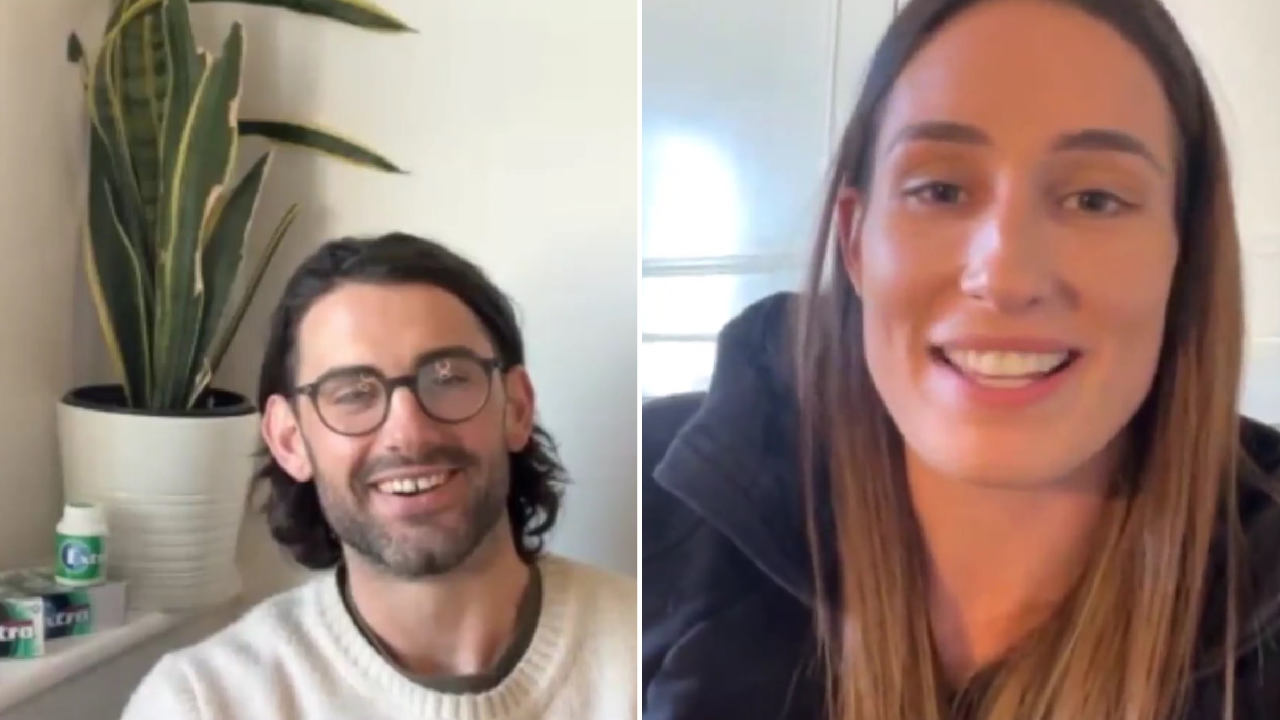
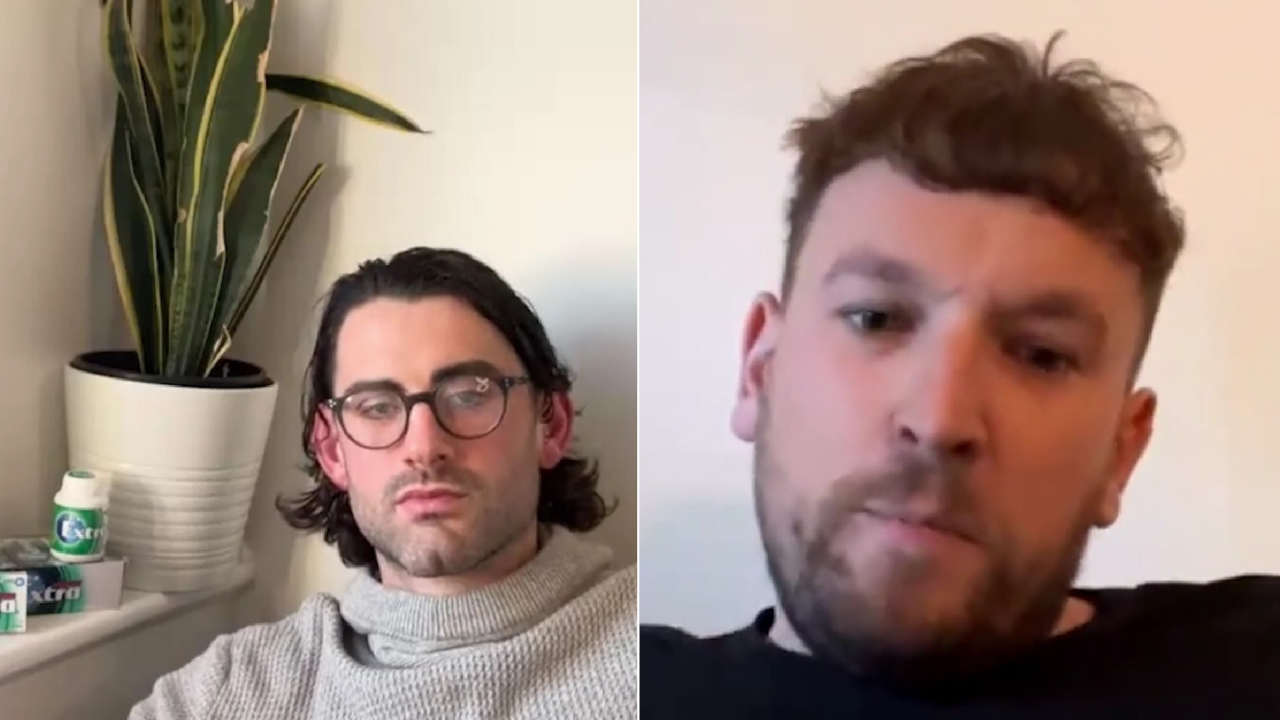

 Load More
Load More